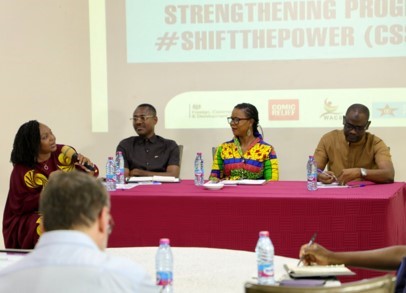STAR-Ghana Foundation, in partnership with West Africa Civil Society Institution (WACSI), has launched an eight-year civil society capacity strengthening programme dubbed ‘shift the power’ (STP). It aims to build the capacity of civil society organisations (CSOs) to be able to effectively promote local community development and improve accountability.
The initiative, which is being implemented with funding support from Comic Relief and UK Foreign Commonwealth and Development Office (FCDO), will provide long-term support to civil society actors, contributing to their resilience, responsiveness and effectiveness.
Under the project, beneficiaries will be provided with grants and capacity development to work in partnership with their constituents in demanding and exercising their rights and access to social services.
Executive Director, STAR-Ghana Foundation, Ibrahim-Tanko Amidu, indicated that strong commitment and coordination between actors as well as genuine participation by communities in development process is key to ensuring that the gains are sustained and resilient.
He said capacity-building, if done effectively, keeps organisations on track to achieving intended goals and to document and easily distribute lessons learnt, potential shortcomings and unintended consequences.
“The media must be impartial and report on events objectively. Unfortunately, this does not always happen, and this is where we come in. By building our capacity and creating our networks, we can provide an independent, neutral source of information to the communities we work in for development, ensuring accountability and transparency.
“Since independence, our development is still fragile. There are lots of communities and social groups that are cut off from development. So, we need to rethink the way we do development and collaborate to implement development interventions,” he said.
Executive Director of WACSI, Nana Afadzinu, on her part, mentioned that the programme was co-created with CSOs across the country and is targetting small to medium size CSOs which do not have the opportunity to get support to work effectively due to systems and structures governing the space.
“What this programme is going to do is give organisations that are fully connected to communities opportunities to use expertise to recognise their power, enable the full participation and demand for accountability in the development of their communities,” she said.
She mentioned that a key component of the programme is to look at the funding mechanism of CSOs. Mostly, she said, CSOs get funding support from foreign donors to execute their work but these funds come with conditions which sometimes limit the scope of work.
The eight-year-long initiative would be implemented in different phases and is expected to empower over 100 CSOs nationwide.










